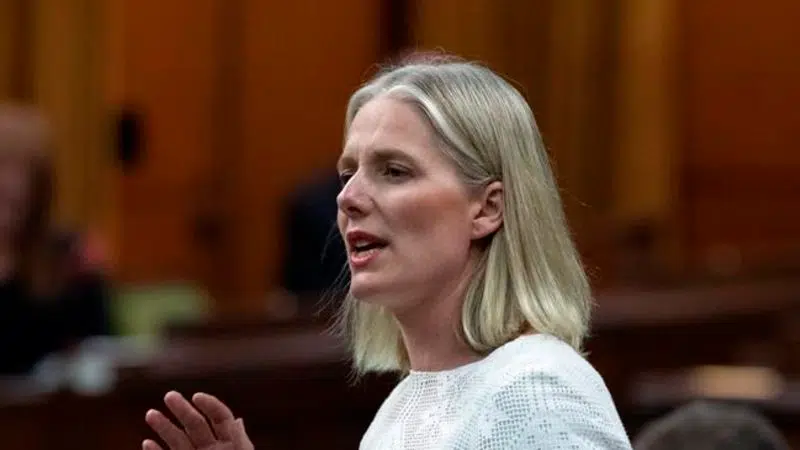
Federal carbon tax coming to Alberta in January: environment minister
Ottawa plans to impose the federal carbon tax on Alberta starting Jan. 1 and federal Environment Minister Catherine McKenna says she has written the province about the decision.
“We need to move forward to tackle climate change,” McKenna said in Ottawa before question period on Thursday.
“We see the impacts of climate change through extreme weather, including in Alberta where there are forest fires that are burning earlier than ever before, that are burning stronger, and that (are) having serious impacts on the lives of Albertans as well as on their economy.”
Alberta passed legislation to repeal its provincial carbon tax last week to fulfil a promise United Conservative Premier Jason Kenney made during the campaign for the April election.

